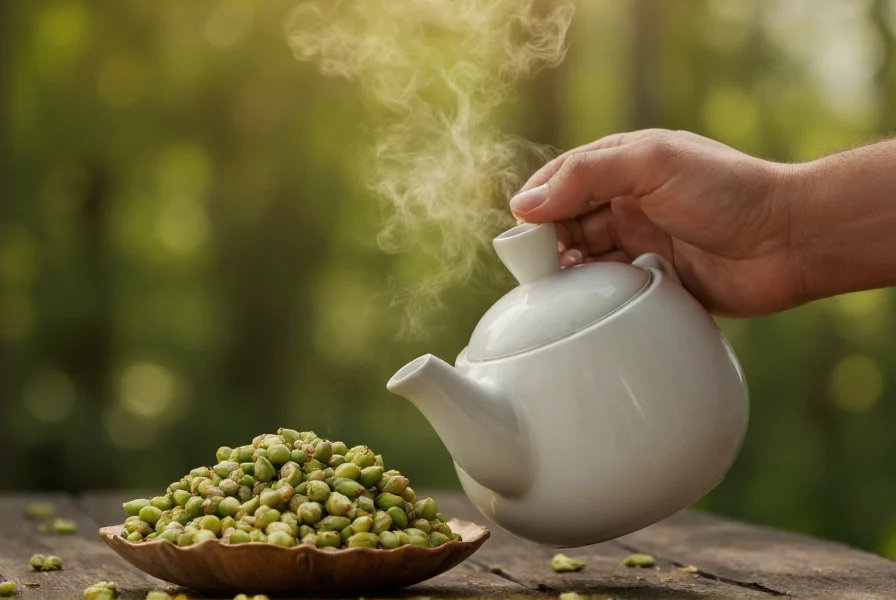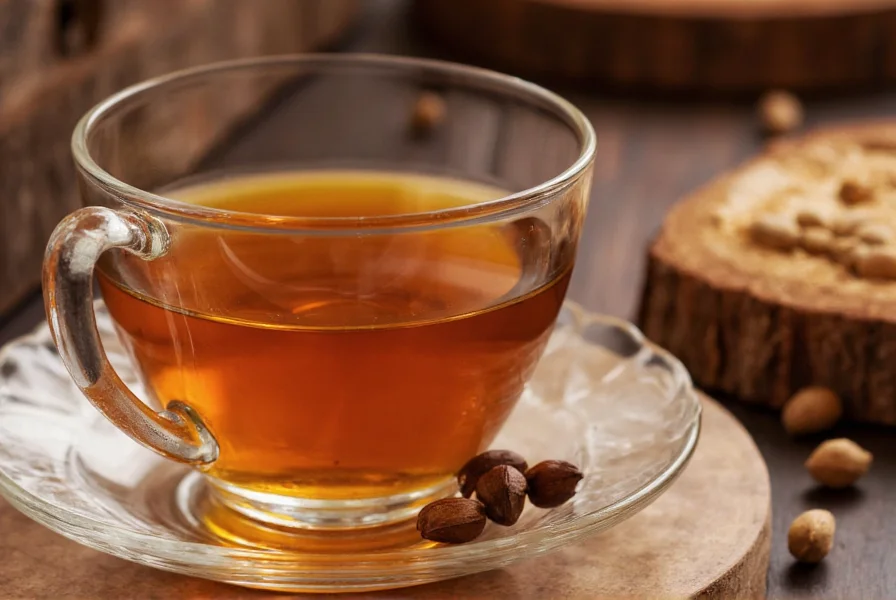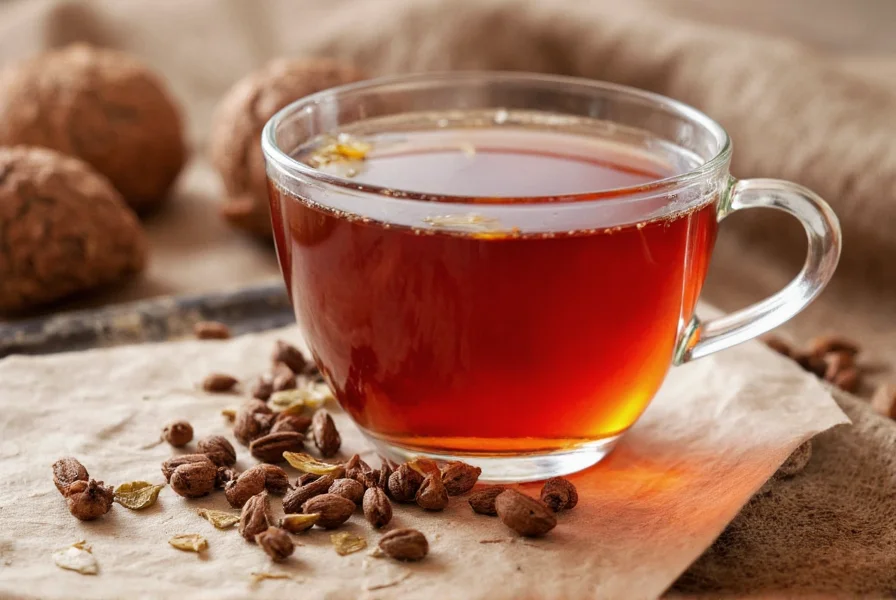Cardamom tea, a fragrant beverage enjoyed across Middle Eastern, Indian, and Scandinavian cultures, has gained global recognition for its impressive health profile. This ancient spice, known as the “Queen of Spices,” has been used in Ayurvedic and traditional medicine systems for thousands of years. Modern research continues to validate many of these traditional uses, revealing cardamom's potent bioactive compounds that contribute to its therapeutic effects when brewed as tea.
What Makes Cardamom Tea Special
Cardamom (Elettaria cardamomum) belongs to the ginger family and contains over 300 different chemical compounds, with cineole being the most prominent (making up 20-50% of its essential oil content). When added to tea—whether black, green, or as a standalone herbal infusion—these compounds become water-soluble, creating a beverage rich in phytochemicals with significant health-promoting properties.

Science-Backed Health Benefits of Cardamom Tea
Digestive System Support
One of the most well-documented health benefits of cardamom tea is its positive impact on digestion. Studies show cardamom stimulates digestive enzymes and increases bile production, which helps break down fats more efficiently. Research published in the Journal of Agricultural and Food Chemistry found that cardamom extract significantly reduced gastric emptying time in animal models, suggesting its potential for relieving bloating and indigestion.
Traditional preparation methods often include crushing the cardamom pods before brewing, which releases more of the beneficial essential oils. This simple technique maximizes the cardamom tea for digestion benefits by increasing the bioavailability of its active compounds.
Powerful Antioxidant Properties
Cardamom ranks among the top spices for antioxidant capacity. A comparative study in Nutrition Research showed cardamom contains higher levels of polyphenols than many common herbs and spices. These antioxidants combat oxidative stress, which is linked to chronic diseases including heart disease and certain cancers.
| Antioxidant Compound | Concentration in Cardamom | Primary Health Benefit |
|---|---|---|
| Cineole | 20-50% | Anti-inflammatory, respiratory support |
| Limonene | 5-10% | Digestive health, mood enhancement |
| Terpinolene | 3-8% | Antioxidant, antimicrobial |
| Alpha-terpineol | 2-6% | Anti-inflammatory, immune support |
Respiratory Health Enhancement
The cineole in cardamom acts as a natural expectorant, making cardamom tea for respiratory health particularly valuable. Clinical research indicates that cineole reduces mucus viscosity and improves clearance from the airways. A study in Respiratory Medicine demonstrated that cineole significantly reduced cough frequency in patients with upper respiratory tract infections.
Blood Pressure Regulation
Emerging evidence suggests cardamom may help regulate blood pressure. A randomized controlled trial published in Indian Journal of Biochemistry & Biophysics found that participants who consumed cardamom powder daily for 12 weeks experienced significant reductions in both systolic and diastolic blood pressure compared to the control group. While this study used powder rather than tea, the active compounds are similarly present in properly brewed cardamom tea.
Oral Health Benefits
Cardamom's antimicrobial properties make it excellent for oral health. Research in BMC Complementary Medicine and Therapies confirmed that cardamom extract inhibits the growth of Streptococcus mutans, the primary bacteria responsible for tooth decay. Chewing cardamom pods has been a traditional remedy for bad breath across many cultures, and brewing them as tea provides similar benefits without the strong flavor intensity.
How to Prepare Cardamom Tea for Maximum Benefits
To maximize the scientific evidence for cardamom tea benefits, preparation matters. Here's the optimal method:
- Use freshly crushed green cardamom pods (3-4 pods per cup)
- Add to hot (not boiling) water (195-205°F / 90-96°C)
- Steep for 8-10 minutes to extract maximum compounds
- Strain and enjoy plain or with a squeeze of lemon
For those seeking how to make cardamom tea for health benefits without caffeine, use it as a standalone herbal tea. If combining with black or green tea, add the cardamom during the final minutes of steeping to preserve its delicate volatile compounds.

Potential Considerations and Side Effects
While generally safe, some individuals should exercise caution with cardamom tea side effects. Those taking blood-thinning medications should consult their doctor, as cardamom may enhance anticoagulant effects. People with gallstones should also be cautious, as cardamom stimulates bile production which could potentially trigger discomfort.
The recommended daily intake for therapeutic benefits is 2-3 cups of properly brewed cardamom tea. Excessive consumption (more than 5 cups daily) may cause digestive upset in sensitive individuals. Pregnant women should consult their healthcare provider before consuming cardamom tea in medicinal amounts, though culinary use is generally considered safe.
Cardamom Tea in Context: Comparing Herbal Options
When evaluating cardamom tea vs ginger tea benefits, both offer digestive support but through different mechanisms. Ginger works primarily through gingerols that stimulate gastric motility, while cardamom's effects come from its essential oils that relax gastrointestinal smooth muscle. For comprehensive digestive support, some traditional medicine systems recommend combining both spices in tea.
Unlike many herbal teas that have singular primary benefits, cardamom tea offers a broader spectrum of therapeutic effects, making it particularly valuable as part of a daily wellness routine. Its unique combination of antioxidant, anti-inflammatory, and digestive properties sets it apart from more specialized herbal options.
Conclusion: Integrating Cardamom Tea Into Your Wellness Routine
Cardamom tea represents a time-tested beverage with growing scientific validation for its health-promoting properties. From supporting digestive health to providing antioxidant protection, this aromatic spice offers multiple pathways to wellness when properly prepared and consumed. While not a cure-all, incorporating 2-3 cups of quality cardamom tea into your daily routine can contribute meaningfully to overall health maintenance.
The key to experiencing the full traditional uses of cardamom tea benefits lies in using fresh, high-quality cardamom and proper brewing techniques that maximize the extraction of its beneficial compounds. As research continues to uncover more about this remarkable spice, its place in both traditional and modern wellness practices appears increasingly justified.
Frequently Asked Questions
What is the best time to drink cardamom tea for maximum benefits?
The optimal time to drink cardamom tea depends on your health goals. For digestive benefits, consume 15-20 minutes before meals to stimulate digestive enzymes. For respiratory support, evening consumption can help clear airways overnight. Many traditional medicine systems recommend drinking cardamom tea after meals to aid digestion and freshen breath, which aligns with its historical use in Middle Eastern and Indian cultures.
Can cardamom tea help with weight loss?
While cardamom tea isn't a weight loss solution, it can support healthy weight management. Research suggests cardamom may improve metabolic function and reduce inflammation associated with obesity. Its digestive benefits help optimize nutrient absorption and reduce bloating. As a naturally caffeine-free beverage, it provides a satisfying alternative to sugary drinks without adding calories. However, significant weight loss requires comprehensive lifestyle changes beyond tea consumption.
How does cardamom tea affect blood sugar levels?
Emerging research indicates cardamom may help regulate blood sugar. A study in Journal of Medicinal Food found that cardamom extract improved insulin sensitivity in animal models. The spice contains compounds that may slow carbohydrate digestion and reduce glucose absorption. For people with diabetes, cardamom tea could be a beneficial addition to their routine, but it should complement rather than replace prescribed treatments. Always consult with your healthcare provider about dietary changes if managing blood sugar conditions.
Is cardamom tea safe for daily consumption?
Yes, cardamom tea is generally safe for daily consumption when taken in culinary amounts (2-3 cups daily). The European Food Safety Authority considers cardamom safe at these levels. However, excessive consumption (more than 5 cups daily) may cause digestive discomfort in sensitive individuals. People with specific health conditions like gallstones or those taking blood-thinning medications should consult their healthcare provider before making cardamom tea a daily habit, as it may interact with certain medications or health conditions.
What's the difference between green and black cardamom in tea?
Green cardamom (Elettaria cardamomum) has a sweeter, floral flavor and is most commonly used in tea for its digestive and antioxidant benefits. Black cardamom (Amomum subulatum) has a smokier, camphor-like flavor and is typically used in savory dishes rather than tea. Green cardamom contains higher concentrations of cineole (20-50%) compared to black cardamom, making it more suitable for therapeutic tea preparation. For health-focused cardamom tea, green cardamom is generally preferred due to its more pleasant flavor profile and higher concentration of beneficial compounds.











 浙公网安备
33010002000092号
浙公网安备
33010002000092号 浙B2-20120091-4
浙B2-20120091-4